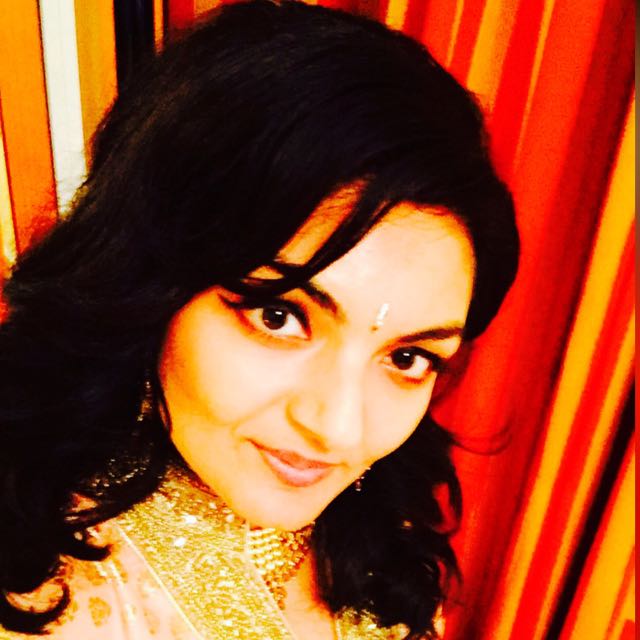

When I first Googled obesity and pregnancy, I was just one month pregnant with my first child and only partly prepared for the bad news. The rhetoric was alarming — words like “dangerous complications” and “life-threatening” filled my search results, along with rundowns on risk factors for everything from gestational diabetes to infant mortality. And, at the end of most articles, there was a statement that went something like this: Doctors recommend that obese women thinking about getting pregnant should attempt to lose weight before conceiving.
I remember thinking, Well, too late for that.
The truth is, there is almost nothing in the media available that gives you a good sense of what being obese and pregnant is actually like. There are a few high-profile women, like plus-size model Tess Holliday, who document what a large body goes through during pregnancy on social media and help render women like me less invisible. But, as someone who has been obese and pregnant, there are definitely things I wish I’d known ahead of time that the internet and common knowledge didn’t provide me.
So, I decided to break down some of those things here. Hopefully, this will spare a few women the same Google-induced panic I had to endure.

Never compare your bump — or lack thereof — with other women’s.
I thought that years as an obese person would have taught me this lesson, but pregnancy brought up a lot of my latent body comparison issues. Being fat has meant understanding all the major and minor ways that my body doesn’t conform to expectations. It’s meant that I don’t take it for granted that I can rent a canoe and find a life jacket that fits me, or that I will fall under the weight limit at the water park’s slides (spoiler: I don’t). But somehow, when I first became pregnant, I was expecting that my body would do what I believed all women’s bodies did. I thought I would get an adorable bump and I could take weekly pictures charting my body going from a half moon shape to nearly full.
This was not to be.
Pregnancy was my blindspot when it came to body expectations, and I should have known that my body would not do what average-sized women’s did, since I had learned that lesson so often before. I have a fair amount of belly fat, so my first pregnancy mostly meant watching it get distributed across my torso in ways that changed my shape — but never gave me a traditional “baby bump.” Weekly photos would have been useless to chart my pregnancy; it wasn’t until I was nearly due that I had a body that even remotely resembled a recognizably pregnant person’s.
But that wasn’t the issue. My real problem was that I allowed this to make me sad, instead of being enthralled with the changes I was going through, regardless of the fact that they didn’t look like the diagrams hanging in my doctor’s office. By the time I had my second pregnancy, I learned to appreciate the distinct ways my body responded to it. And, interestingly, that pregnancy looked completely different from my first — so it’s pointless to even compare my own body from one pregnancy to another.

Keep scary medical information in perspective.
Since the advent of sites like WebMD, I’ll sometimes find myself Googling the most mild of health issues and home in on the worst-case scenario. (A nosebleed doesn’t mean my room is too dry; I probably have leukemia.) But, while I pride myself on being a relatively tempered researcher, when I was newly pregnant, I went into web-sleuth overdrive.
The problem? There’s so much conflicting information out there. Take gestational diabetes, for example. Most articles on obesity and pregnancy will mention that obese women are at an increased risk for developing GD, so it’s an easy condition to fret about. And while all the medical data is clear that risk is real, it’s also true that studies can’t quite agree on how many women will develop GD: The CDC suggests that, for all women, the number is “between 1% to 14%,” which is quite a large window. A different study by the American Diabetes Association suggests that obese women are four times more likely to develop GD than women of average weight — but that number can change depending on the nationality of the population studied.
Without wishing to minimize the seriousness of obesity-related pregnancy conditions, I will say that it was critical for me to keep a few things in mind. First off, just because you fall into a higher-risk category, doesn’t mean you’re certain, or even likely, to have any of the problems listed in bold letters in all those “obesity and pregnancy” articles. According to Sharon J. Herring, MD, an associate professor of medicine at Temple University’s Center for Obesity Research and Education, “There are lots of ways you can have a healthy pregnancy and also have a chronic disease that goes along with it, and so many people do. I wish that message were a little bit larger.” But, even when an obese mom-to-be is at a proven higher risk for miscarriage, gestational diabetes, or high blood pressure, it’s important to remember that these things happen to non-obese moms-to-be, too, and often don’t have clear causes.

If you have a miscarriage, know that it’s not your fault.
When I miscarried my first pregnancy at nearly 11 weeks, my first impulse was to blame my weight. I felt as if I had killed my child. But, in the aftermath, I did a lot of research, and learned just how common miscarriage is — up to a quarter of all pregnancies end in miscarriage, according to the American Pregnancy Association. In fact, of all the dozens and dozens of women I knew who had been through a miscarriage, only one other was obese. All the rest were average weight women. And the list of famous women who had miscarried their first pregnancy told the same story: Beyoncé, Pink, Tori Amos, Nicole Kidman. Loss is loss, and it’s usually inexplicable. Once I stopped fat-shaming myself, I could finally see that clearly.

Realize that doctors don’t always know how to talk about weight.
In my experience, doctors tend to fall into one of two camps: They either ignore my weight, even when it seems relevant and I press the issue, or they make it the center focus of all of my health issues. During my two full-term pregnancies, my primary doctors never said a word about weight — they never talked about recommended weight gain, nutrition, or the risks that might accompany my high BMI (though I definitely already knew them from Googling). In the middle of my last pregnancy, I asked my doctor, “Am I gaining too much?” and she just looked uncomfortable and said, “You know, just… try to control it.” And this is a problem Dr. Herring sees, too. “[One] challenge is getting providers to chat about [weight] with patients; it’s a real challenge with obstetricians,” she says.
On the other end of the spectrum, I’ve also had the occasional doctor who made my weight the forefront of every conversation. (This includes an optometrist I saw once who berated me for being so heavy — all I wanted to say was, Dude, just give me my glasses.) When I was sent to a high-risk Ob/Gyn because my baby was difficult to see clearly in the ultrasound (a probable result of my extra belly fat, although no one said so explicitly), the high-risk doctor clearly expected me to have every problem in the book. “Are you sure you’ve had no problems with your blood pressure?” he asked. “And your gestational diabetes test was normal? Maybe we should check that again.” He put me through weekly ultrasounds and tons of extra tests, anticipating obesity-related problems that I never developed.
Maybe it’s a big ask, but it would be nice to have a doctor who falls somewhere in the middle of these extremes. My advice, given my experience, is to make sure to advocate for yourself if you feel like your doctor is ignoring your weight or focusing too much on it.

And don’t forget: There are some advantages to being obese and pregnant.
This, perhaps, was the biggest surprise of all. There are ways in which I felt that being heavy gave me some psychological edges over average-sized women. For one thing, I was used to weight fluctuations. I despaired far less and took more in stride than many other women in my life who have never gained a large amount of weight in a relatively short amount of time. This, of course, only reflects my personal experience, so it’s hard to say if this phenomenon happens on a larger level.
Another pleasant surprise? My 5-year-old son doesn’t care what I look like, and it’s not likely that my younger son will, either. But since I’ve noticed that kids love seeing pictures of when they were in utero, I’ve learned to not skip those aforementioned pregnancy pictures.
I just hope that, amid all of the body-shaming and fear mongering, all women can remember to celebrate their pregnancies, even if, like me, they’re still working their way up to posting about them on Instagram.
Click HERE to read more..
Vote for Shikha Dhingra For Mrs South Asia Canada 2017 by liking her Facebook page.
You can publish this article on your website as long as you provide a link back to this page.


Be the first to comment